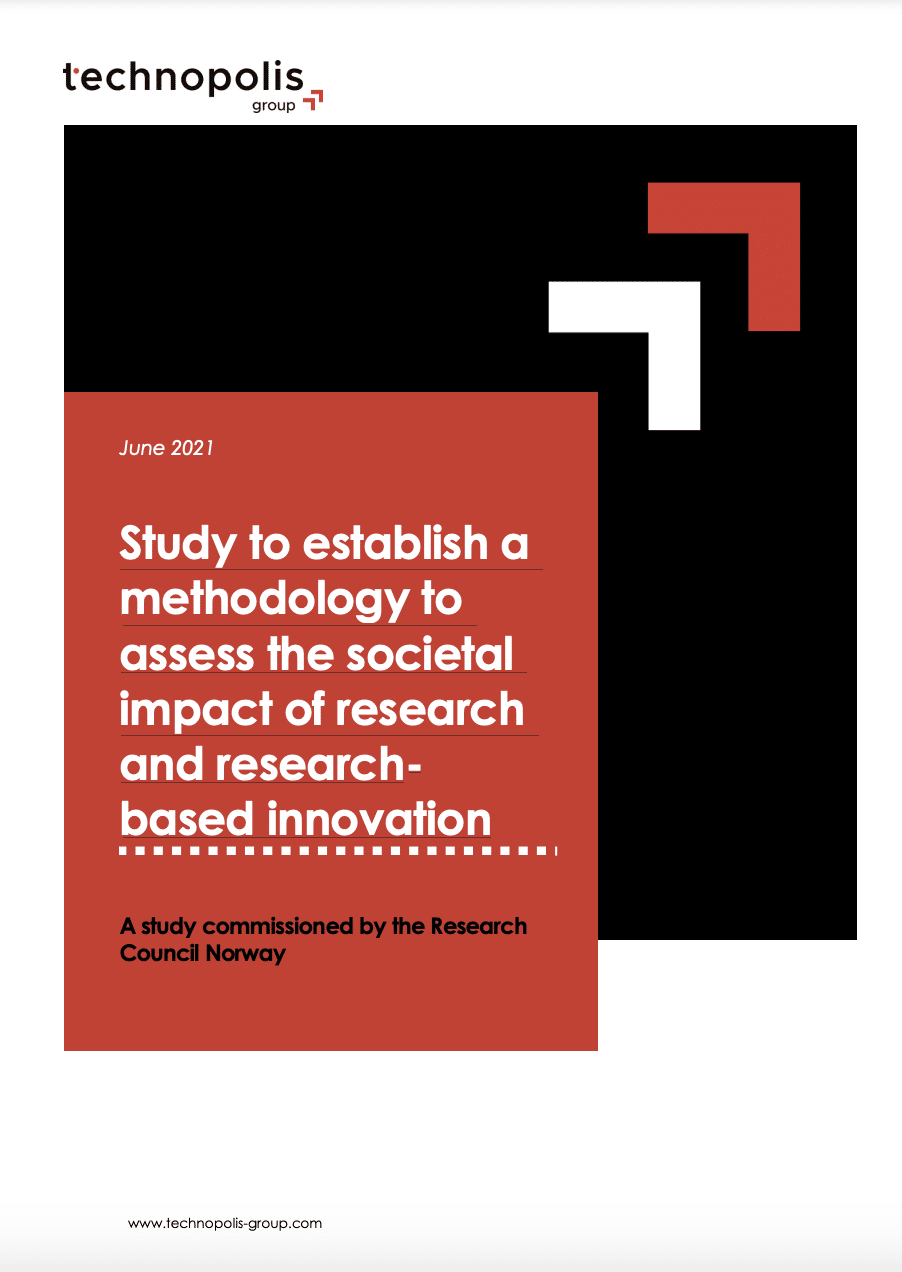Measuring the impact of research using a data science approach
Publication date: 23 September 2024 | Report language: EN
In 2021, Research Council Norway (RCN) commissioned Technopolis to undertake a study aimed at identifying and assessing the societal impact that research and research-based innovation activities performed by the professional community of knowledge producers (academia, research institutes, firms and others) has on the environment, economy, technologies, policies, culture and practice across society.
As part of the study, the Technopolis team developed and piloted a novel approach to explore pathways to impact using data linking of historical RCN grant data to map and explore its contribution to research outcomes and to innovation and policy making. It was one of the first studies of its kind, and concluded with recommendations on how to implement this approach going forward, and how to best combine it with more traditional quantitative and qualitative techniques.



